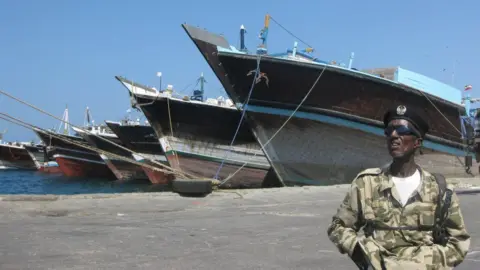In a significant geopolitical move, Somaliland has officially rejected Somalia’s proposal to offer the strategic Berbera port for U.S. military use. This decision underscores the complex regional dynamics of the Horn of Africa and reflects Somaliland’s determination to assert its sovereignty while navigating the intricate relationships with its federal counterpart, Somalia, and global powers.
Background: The Berbera Port’s Strategic Importance
Situated on the Gulf of Aden, Berbera is a critical maritime hub that has historically served as a gateway for trade in the region. The port plays a vital role in Somaliland’s economy, facilitating trade not only for the self-declared republic but also for neighboring Ethiopia, which relies heavily on Berbera for access to international shipping routes.
In recent years, the United States, alongside other international players, has been increasingly interested in establishing a firmer military presence in the region. This interest stems from the ongoing threats posed by piracy, terrorism, and regional instability, particularly from extremist groups like al-Shabaab. A military presence at Berbera could provide the U.S. with enhanced operational capabilities in East Africa, aligning with its broader strategy of countering terrorism and ensuring maritime security.
Somaliland’s Rejection
Despite the potential benefits of U.S. military involvement, Somaliland’s government has made a decisive choice to decline the offer. This refusal is rooted in multiple factors, including concerns over national sovereignty, regional stability, and potential repercussions on its economic interests. Somaliland leaders have emphasized their desire for a self-sufficient approach and have labeled the proposal as one that could undermine their efforts to cement their status as a separate entity from Somalia.
President Muse Bihi Abdi articulated that allowing foreign military presence could invite instability and complicate Somaliland’s long-standing aspirations for international recognition as an independent state. He reiterated that while Somaliland values relationships with global powers, these ties should respect its autonomy and developmental ambitions.
Implications for Somalia and the U.S.
Somalia’s proposal appears to stem from a desire to bolster its own military capabilities and project a stronger presence in the region. However, Somaliland’s refusal complicates this strategy, underscoring the challenges of the federal government’s authority over the semi-autonomous region.
For the U.S., the rejection may necessitate a reevaluation of its approach in the Horn of Africa. With the escalating threats from al-Shabaab and other militant groups, securing strategic partnerships is essential. However, the complexities of Somaliland’s political landscape must be recognized, as any military collaboration without local consensus could be counterproductive.
Regional Reactions
Neighboring countries and regional organizations have been closely monitoring the situation. Ethiopia, which has vested interests in the Berbera port, has expressed support for Somaliland’s autonomous stance while maintaining its alliance with Somalia. This delicately balanced relationship highlights the nuances that characterize diplomatic and economic engagements in the Horn of Africa.
Conclusion
Somaliland’s rejection of Somalia’s offer for U.S. military use of Berbera port illustrates a pivotal moment in the region’s political landscape. By prioritizing its sovereignty and standing firm against external pressures, Somaliland is reshaping its narrative as a self-governing entity within a region rife with geopolitical complexities. As global dynamics continue to shift, the responses of Somaliland, Somalia, and other nations will undoubtedly play a crucial role in determining the future stability and prosperity of the Horn of Africa.
Email Us on editorial@nnafrica.com













